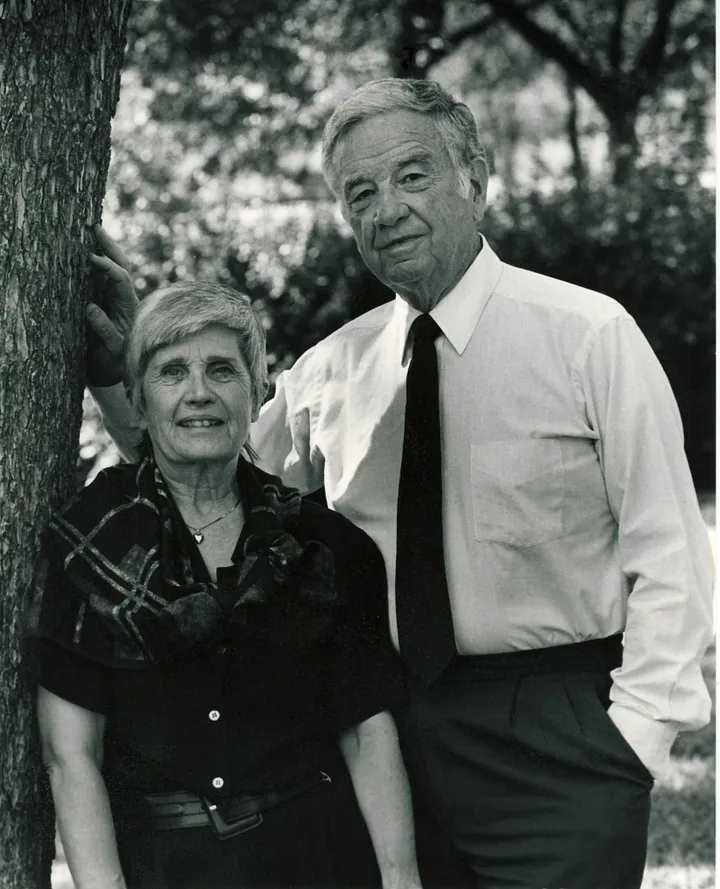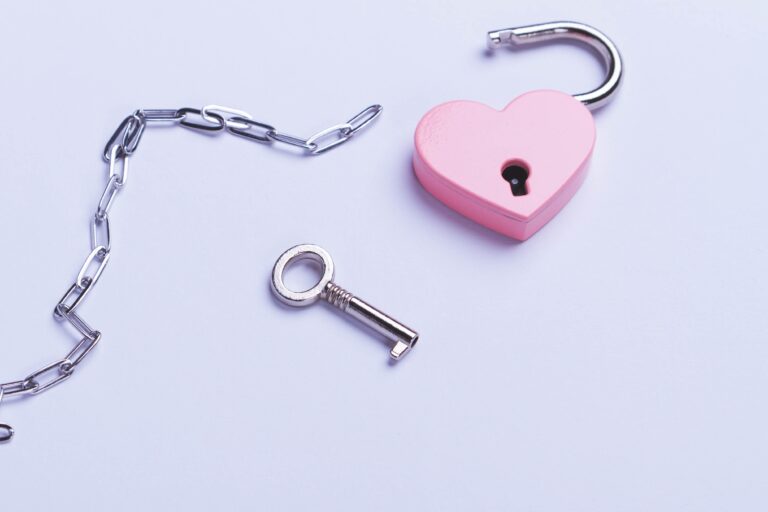Setting Boundaries is the Ultimate Healthy Self Care.
Having healthy boundaries with others is the most important skill we can learn, yet almost no one does it, at least properly. Why? Babies are born vulnerable with no ability to protect themselves, so our families protect us. If things had gone well, they would have taught us how to protect ourselves physically, mentally, and emotionally as we grew so that one day, when we’re on our own, we can protect ourselves. Because most of us grew up in families that did not have appropriate boundaries and did not teach us these things, the end result is the mess we see every day — absolutely zero knowledge of what they are and how to implement them. It is a huge reason, if not the main reason, why so many people and relationships stumble, crumble, and fall.
We will end all this today because I will teach you what they are. When you start practicing healthy boundaries, it will be the first step to having mental and emotional health once and for all.
What are Boundaries?
Boundaries are human beings’ way of protecting themselves. They are a security system that we use to prevent ourselves from verbally, physically, and emotionally harming other people and from them harming us. It is the most important form of self-care a human being can have. In my therapy sessions, at least half the conversations I have with people are centered around either the lack of boundaries their friends and family members have or my client’s inability to set boundaries. If you ever complain about something someone said or did, or they complained about you, then the chance of it being related to some failure of setting boundaries on either side is about 100 percent.
Andrea and Robert came to see me over issues in their marriage. After a couple of sessions, they were doing well, but for one issue, she says.
“Robert acts nasty with my family,” she says. “We all talk about how he can be when they come to stay with us or when we are on vacation together.”
“I can only take so much of your family, and when I’m done, I’m done,” he says.
After I asked a few questions and got some more information, the problem was clear: Andrea’s family is boundaryless, and Andrea had an aversion to setting limits with them.
I found out that Andrea’s biological family is all up in one another’s business all the time. They also love to do everything together and take it very personally when they aren’t invited on vacations with Andrea and her husband, Robert, which reveals a very immature and enmeshed family system. Robert likes her family; he doesn’t want to take every single vacation with them and doesn’t really want them to stay in their house for days or weeks when they visit from out of town. He says he probably wouldn’t mind very short overnight visits to their home or the occasional vacation together, but he resents that they expect the doors to their home to be open whenever they want, for as long as they want, and to be invited anytime they go anywhere on a trip.
Andrea says they had stopped inviting them on every trip after a recent dust-up, but her resistance to setting further boundaries centered around her parents babysitting for them anytime they go on a trip alone. She thinks accepting their generosity and then setting limits on other times when they visit the entire family or travel is ugly. She says they also need to stop accepting their babysitting benefits if they do end up setting boundaries with her family.
This was an extreme example of family boundary-setting problems. It was mind-boggling because both Andrea and Robert are highly educated individuals in high-powered jobs, but when it came to setting boundaries with her family, Andrea regressed to the age of a frightened little 7-year-old. What Robert was asking for was very reasonable, and since spouses should come before biological family, except in extreme cases, the answer to what to do was obvious. Still, the thought of setting any boundaries with her family was overwhelming, and Andrea wept, saying she would do it, but her family would be devastated and would take it very personally.
“Boundaries are how we take care of ourselves,” I said gently. “It’s self-care. Robert is trying to care for himself and manage his emotional well-being, and in this case, you need to have his back.”
If Andrea’s family had a healthy boundary system, the problem would never have existed. Instead, they have zero boundaries, and like a journalist with a press pass at a world leader summit, they want an all-access pass to anything they want to attend. It’s a form of entitlement, and people who feel entitled do not handle having that press pass limited or taken away very well. I warned Andrea about how ugly people with narcissistic tendencies can act when a boundary is set and that they are likely to finger-point back at the boundary setter and say things like, “Why are you being such a bitch?” or “Why are you being so mean?” Upon hearing that, she just put her head in her hands and wept again.
I also encouraged her to let her parents choose whether or not they want to continue babysitting moving forward instead of deciding for them.
Types of Boundaries.
There are two different types of boundaries: external, those involving the physical body, and internal, those involving the psyche. When it comes to the body, the proper distance for giving another personal space is to sit or stand at least two feet away, and a person is never touched without their permission. Never touch babies, things, pets, or adults without asking first.
Sex is a category that falls within the physical body boundary, and a person should be able to agree or not to have sex with another without experiencing a negative reaction. For example, if Sallie is bone-tired and doesn’t feel like having sex with her husband, Stan, tonight, she should practice self-care and tell him that she is too tired. Stan, in return, should be happy that Sallie takes such good care of herself. I wrote an entire blog about sexual boundaries recently. You can find it by clicking here.
People have the most difficulty with internal boundaries, those affecting how we think, feel, and act. The concept is very simple: Once we are grown, we have free will to do whatever we want. A person’s free will is like a human holy grail, and each of us needs to honor and revere it as the precious thing it is, meaning I must not mess with you doing as you please. There is a caveat, however: if we break laws or do things other people don’t appreciate, there may be consequences. If you do something I don’t like, I might set a boundary asking you not to do it, and you may or may not respect that boundary, but I also have the choice to create distance from or end relationships with those who don’t respect the clear boundaries I have just set.
Adults must not tell other adults what to think, feel, or do unless invited to do so. This is why someone trying to fix a problem we bring up or offer unsolicited advice can be so annoying; it’s a clear boundary violation.
In application, I cannot tell my husband or grown daughter what to do or what I think they should do unless they ask for my advice. If I have something that might be helpful to them, I must ask permission to tell them what it is. If they say no thanks, I must leave it be. I do have the right to make a request of anyone … I may request that my husband do something about his snoring. If my request is reasonable, which I think that request is, he should honor it. After all, if we are in a relationship with someone helping each other through life, what the heck are we doing without meeting one another’s reasonable requests?
Since we all are free to be our authentic selves and do life however we choose, this means you get to implement personal boundaries, such as not having to do things other people ask you to do unless you want to. I always tell clients this rule of thumb: Say yes to people if you can do it with a happy or neutral heart. A neutral heart means It might not be my favorite thing to do, but I don’t mind doing it. If you don’t want to do something or will resent the person if you do what they ask, then you must set a boundary and say no thanks. Self-care means protecting yourself from being miserable if at all possible. Remember that.
Codependent relationships and boundaries.
First, it’s important to know that I work from the Pia Mellody Facing Codependence model, not the one from Melody Beattie, the author of Codependent No More. Pia Mellody focuses on childhood developmental trauma, also known as complex trauma, and how almost all of us were traumatized numerous times in childhood, whether we remember it or not. Mellody says that once we are traumatized, we become emotionally disabled in five different areas, and area number two is boundaries.
Typically, we end up with a boundary system similar to the family we grew up in. And since people with complex trauma tend to be extreme one way or the other, this means you either grew up in a family with no boundaries at all, like Andrea’s and mine, or your family was walled off and emotionally unavailable. Part of codependent recovery is learning to have a healthy boundary system based on the external and internal boundary guidelines I laid out above. All a person has to do is learn and then start to practice the rules of external and internal boundary setting, and you’ll be on your way.
For those who are walled off and invulnerable, know that you can safely emerge from your emotional and physical bank vault by learning healthy boundary setting. You have to learn who is safe to be yourself with, come out of your box, and take chances on letting people in. If something comes up that harms you emotionally, you can protect yourself in the moment and then go back to being vulnerable again. nothing is sadder than someone who stays hiding on life’s sidelines because they don’t know how to protect themselves along the way. My method is to be out and vulnerable as a person who plays it pretty safe and doesn’t reveal risky things about myself. If I get to know you and learn to trust that you are safe, then I might relax completely and let you get closer. Each person has to work out a vulnerability policy that works for them. The author and sociology professor Brene Brown researches and writes about the necessity of courage and vulnerability; her work is profound and wonderful. I highly recommend it.
Speaking of courage, it takes courage to set boundaries, especially in the beginning, but this is what adulting is. Childish and immature adults are afraid to advocate for themselves, even when it’s entirely appropriate. When you start setting boundaries with people, they won’t like it, and you will likely be negatively judged. Yes, they will miss the old you who allowed them to take advantage or do whatever they wanted without being called out. Remember this: boundaries are for your own needs and protection. They are the most important form of self-care there is, and when managing emotional wellbeing, practicing self-care becomes numero uno among your priorities. Boundaries are vital and necessary for you to attain and maintain your emotional well-being. You will never have healthy relationships unless you learn to practice them.
Dealing with boundary offenders.
I’m sure that people who cannot restrain themselves boundary-wise have radar that helps them locate those with no boundary system. Before I learned to practice boundaries, I had none at all, and men in the workplace would take full advantage of my pleasing, non-confrontational self and touch, grab, hug, and say inappropriate things. I would smile while hating their guts, a sure sign that I was valuing their inner peace over my own and sabotaging my emotional well-being so those horny toads could be happy. Dear God, I was lost. We absolutely must put our mental and emotional needs over the wants and needs of others, but darn, it’s difficult to get people to do that.
Today, I don’t wait one second if someone is inappropriate in my presence. These days, the inappropriateness is more likely to be political, such as blatant racism, putting certain types of people down, or other controversial topics. People who bring up high-risk subject matter are boundary offenders, and when I hear it, I will speak out about it every time and respond respectfully and as an adult. I might say, “Not everyone thinks like you do, and I’d appreciate it if you’d either be respectful when speaking about your fellow humans or leave me out of the conversation.” Letting things slide enables boundary offenders.
On social media, you find a hornet’s nest of boundary offenders. There, under the cover of an anonymous name, people have no problem saying horrible, hateful things, telling lies, butting into your business, and telling you what an idiot you are. The ultimate boundary there is blocking people so you never have to encounter them again and sometimes even setting a post so that people aren’t allowed to comment. These are different times and boundary work is necessary no matter where you are, in person or on the Internet.
The boundary I haven’t mentioned.
Pia Mellody discusses speaking and listening boundaries, which are vital to learning how to be healthy with yourself and in relationships. I wrote a blog about this in August 2023; you can find it here.
Why boundaries exist.
Boundaries exist so we can have healthy relationships with ourselves and others. Unhealthy relationships almost always involve people with no personal limits or restraint boundaries preying on people with no protection boundaries, someone who is so walled off that emotional connection causes them tremendous anxiety so they retreat, people who feel entitled to do whatever they want, those who manipulate to make you feel guilty, and those who won’t take no for an answer. I have long hoped that the concept of boundaries and the negative consequences of not setting them would be taught in middle and high schools. It’s so important to emotional well-being and enjoying life. People need to learn to value and protect their inner peace. It’s okay to say no, it’s okay to live as you choose so long as you don’t harm others, and it’s okay to be you.
Hey, I’ve written a book about the marriage crisis dynamic and what to do when you’re in one. It will be published by HCI Books and will be out either in the fall or around January. I look forward to sharing my dream come true with you—stay tuned!
In the meantime, check out my new ebook on marriage crisis and how to know if you need to separate. It also includes a plan for an amicable divorce.
We’ve got lots of news and exciting things going on in the relationship realm … so I’m preparing to send out a regular newsletter with the best relationship advice on the planet. To get on my email list, click here.
Becky Whetstone, Ph.D., is a licensed Marriage and Family Therapist in Arkansas and Texas* and is known as America’s Marriage Crisis Manager®. She is a former features writer and columnist for the San Antonio Express-News and has worked with thousands of couples to save their marriages. She can work with you, too, as a life coach if you’re not in Texas or Arkansas. She is also co-host of the YouTube Call Your Mother Relationship Show and has a telehealth private practice as a therapist and life coach via Zoom. To contact her, check out www.DoctorBecky.com and www.MarriageCrisisManager.com. Also, here is how to find her work on the Huffington Post. Don’t forget to follow her on Medium so you don’t miss a thing!
For licensure verification, find Becky Whetstone Cheairs.







Right Boundaries are so important & best way of protecting ourselves from verbal, physical, and emotional harm.